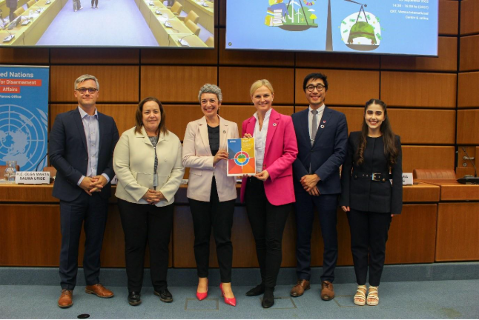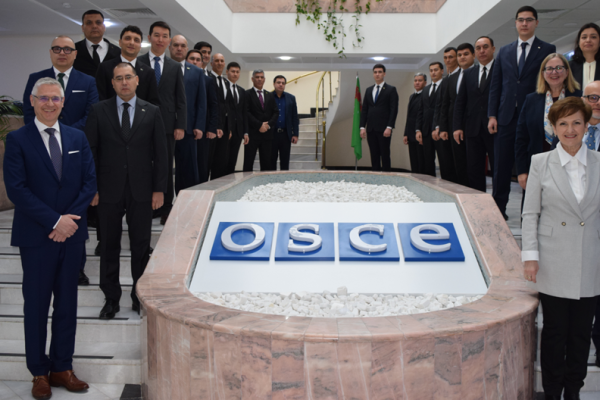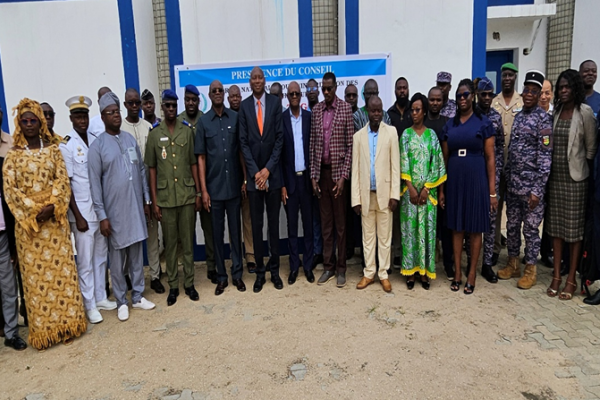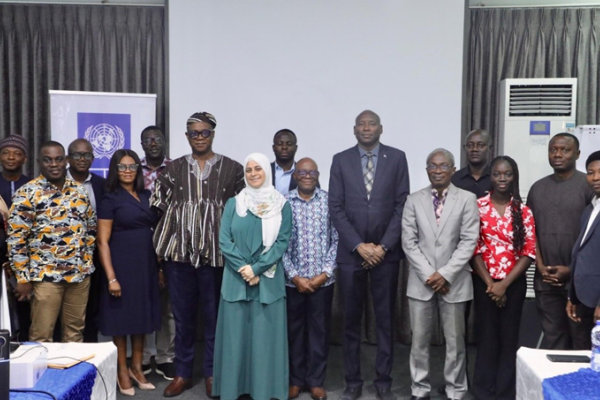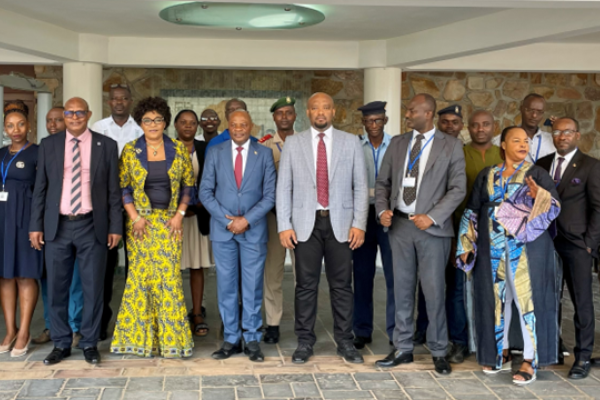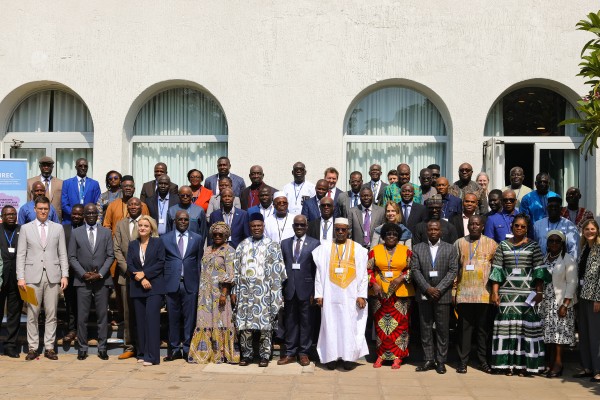In the 2024 Pact for the Future, Member States requested the Secretary-General “to provide analysis on the impact of the global increase in military expenditure on the achievement of the Sustainable Development Goals”. The report The Security We Need: Rebalancing Military Spending for a Sustainable and Peaceful Future was published in September 2025 and highlighted at a press conference with the Secretary-General, as well as two events on the sidelines of the High-Level Week of the General Assembly: an interview between the High Representative and the Acting Administrator of the UN Development Programme in the SDG Media Zone and a discussion in the Goals Lounge.
To raise awareness about the report’s findings in Vienna, the United Nations Office for Disarmament Affairs (UNODA) in Vienna, in partnership with the Ban Ki-moon Centre for Global Citizens, hosted a Vienna Conversation Series event to bring the findings and recommendations of the study to the Vienna community.
The discussion highlighted the urgency of finding a more balanced approach regarding the distribution of funding between military spending and investments that promote a holistic, human-security approach.
The event was opened by Ms Rebecca Jovin, Chief of the UNODA Vienna Office, who presented key insights from the Secretary-General’s report. She noted that global military expenditure reached $2.7 trillion in 2024 and could rise to $6.6 trillion by 2035. All in all, States spent almost $22 trillion on the military in the past decade – against the backdrop of a $4 trillion shortfall in development funding. To illustrate the opportunity costs and trade-offs of current choices, she presented examples from the report in financing gaps to meet key development needs – such as highlighting that just a fraction of these expenses, between $2.3 and $2.8 trillion, would be sufficient to eliminate extreme poverty globally. While the report recognises military spending as part of States’ security needs, it notes that such spending can also lead to adverse security impacts, exacerbating tensions, fuelling arms races, and increased conflict risk. As such, it stresses the need for balance, urging governments to seek holistic approaches that prioritise investment in diplomacy, confidence-building, and sustainable development.
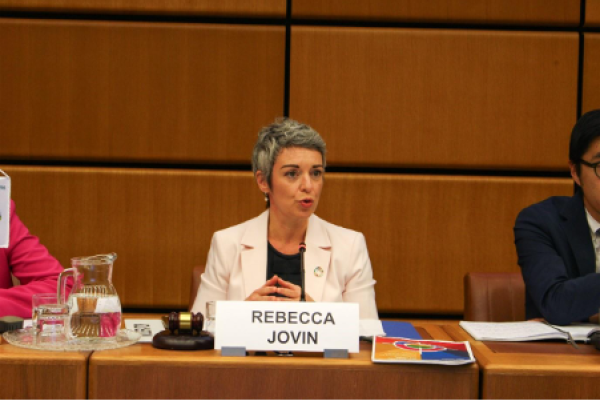
Through a moderated panel discussion, led by the Ban Ki-moon Centre’s CEO Ms Monika Froehler, the Vienna community was invited to engage with experts from government, think tanks and civil society to delve deeper into the recommendations presented by the report.
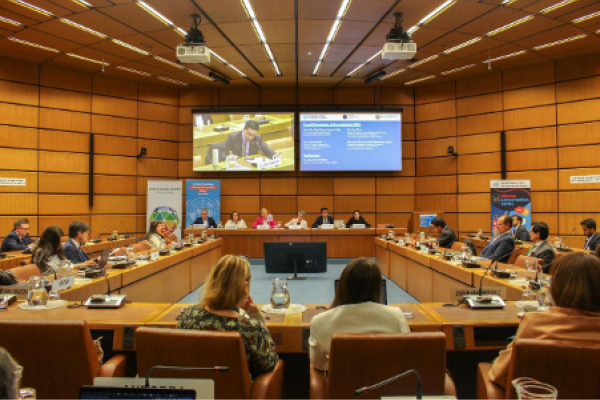
Her Excellency Olga Marta Sauma Uribe, Permanent Representative of Costa Rica to the United Nations in Vienna, emphasised that growing military budgets are a direct threat to the Sustainable Development Goals (SDGs) and undermine the very notion of security. She cited Costa Rica as an example of a country that has achieved stability and security without military expenditure, instead investing in justice institutions and development as part of a human-centred security approach. “Disarmament is development,” she concluded.
Dr Nan Tian highlighted the economic costs of excessive military budgets, noting that they are often financed through debt, creating an intergenerational burden. He stressed that such spending exacerbates social inequalities, particularly gender disparities, as women are disproportionately affected by underinvestment in social sectors.
Mr Lukas Wank, Director of the Austrian platform Global Responsibility, underscored the need for innovative financing strategies, proposing a stronger role for outcome-based financing and closer integration of climate change considerations with security debates. He also called for more consistent public reporting on the impact of military expenditure.
Ms Lara Guedes Gonçalves Costa, Graduate Professional at the United Nations Institute for Disarmament Research (UNIDIR), reminded the audience of the importance of youth engagement in shaping future policy. Her remark that “Budgets reflect priorities.” was echoed by other speakers and audience members. She added that “Every increase in military spending carries an opportunity cost, and youth will bear those costs most directly. So, if we are serious about sustainable development, we must take youth seriously in the debate on military expenditure.”
The event underscored the pressing moral and political imperative to rebalance global priorities. As military budgets climb, so too does the responsibility of the international community to address poverty, hunger, and the climate crisis. A recurring message throughout the discussion was that security should not be understood solely in terms of military might, but also through the lens of social development, justice, and investment in people. Participants also reflected on the importance of involving policymakers from countries with the largest military budgets in discussions and in engaging the public and legislatures on transparency and accountability in budget-making.
A video recording and podcast of the event are available on UNODA’s Disarmament Education website.
